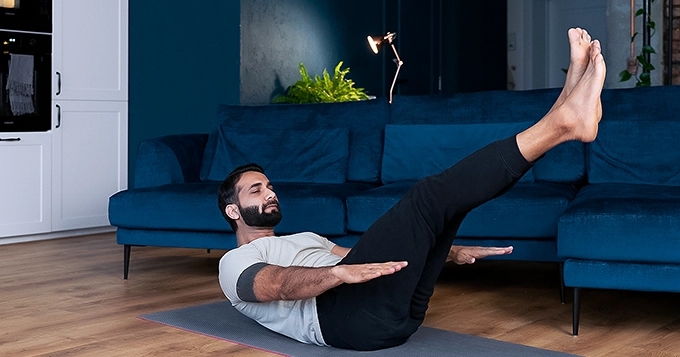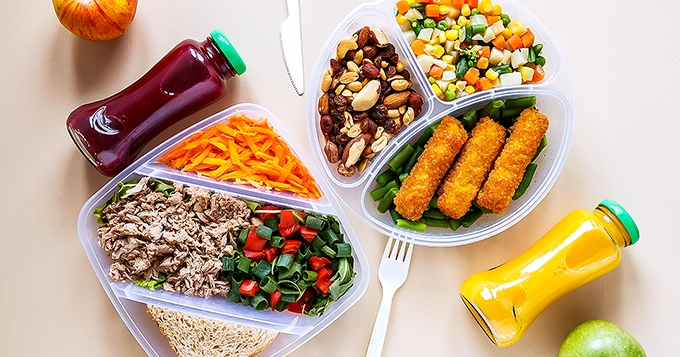Are you putting in the hours, sweating it out, and never missing a single home workout, only to find that the results you desire remain elusive?
Here are some reasons why home workouts are not giving you the results you want.
What is a home workout?
Home workouts have gained immense popularity due to their accessibility, offering a convenient and cost-effective alternative to traditional gym memberships.
A few reasons why a lot of people prefer home workouts is because they can easily fit exercise into their daily routines. With the rise of online fitness platforms, mobile apps, and a plethora of workout resources available on the internet, people can access a wide variety of guided workout sessions at any time and anywhere.
The mix of convenience, online resources, and the ability to pick workouts based on personal preferences has made home workouts a popular and easy option for staying active and healthy.
Although home workouts are easy to access, you might still face challenges in reaching your fitness goals. Let’s explore common reasons why your home exercise routine may not be as effective as you were hoping.
Why your home workouts aren’t working
-
You don’t eat a proper diet, or your diet is not right for you
Effective home workouts are closely tied to maintaining a proper diet.
Failing to follow a nutritious and balanced eating plan can significantly impede your progress, as your body requires the right fuel to support muscle growth, recovery, and overall fitness goals.
You have to have the right combination of diet and exercise that suits your goals.
But among the wide variety of existing diets, how do you pick the best diet?
Considering the uniqueness of our bodies, it’s difficult to provide universal nutrition recommendations that apply to everyone in all situations. However, a solid starting point is to focus on properly hydrating and consuming unprocessed whole foods, high-quality proteins, and essential fats (such as those found in avocados and nuts) as often as you can.
-
You’re miscounting calories
It’s also important to know the total calories you should consume in a day so you can plan your meals accordingly.
Without being mindful of your food intake, it’s easy to underestimate the impact of additional calories from snacks or drinks, potentially undermining the efforts put into your workouts.
For example, you might be doing core workouts at home to reduce belly fat. However, you might have been unknowingly eating more calories than your daily requirement. This can make your workout ineffective since eating a lot more calories almost every day will instead make you gain weight.
-
You’re not consistent
There are a few reasons for your lack of consistency,
It might be that you are falling off your routine, starting again next week, but this time, you’re going to try a different workout or diet. Or you might be doing too much too soon.
This situation is quite common. If you struggle to stay consistent with one thing, you might focus all your attention on something new and current, believing that the next workout program or nutrition plan will finally be the solution.
To achieve lasting and sustainable results, it’s important to develop habits that can be maintained in the long run— and this doesn’t happen overnight.
Don’t fall into the belief that significant change requires drastic measures. Making a change should feel manageable enough that you can stick with it, even on tough days. Start with where you are and incorporate habits that you feel completely confident doing each day, week, and month. These small but consistent actions add up over time.
-
Your workout is not reflective of your goals
Are you doing all the right things, meaning you’ve been exercising consistently, eating well, staying hydrated, and getting enough sleep, but you’re still not seeing results?
You may need different programming, or you may not be varying your workouts.
Sticking to the same old workout routine might be the obstacle preventing you from achieving better fitness outcomes. Doing the same exercises repeatedly will cause a plateau in both your workout performance and results. Plus, it’s likely to make you bored and less motivated. To see real results, your body craves new challenges and a training plan that gradually increases in difficulty.
You can make your workouts more interesting by varying intensity, adjusting weights, changing how long you work out, focusing on different muscles, or trying out entirely new activities.
-
Your goals are not realistic
Some set goals that are too hard to reach. This can lead to big disappointments because of unreal expectations. Before giving up, consider what’s doable for your fitness level.
Setting realistic fitness goals entails knowing your current fitness level, acknowledging any limitations, and considering your lifestyle. Start by defining clear and achievable objectives that align with your long-term aspirations. Make your progress easier to track by breaking down larger goals into smaller and manageable steps.
Be specific about what you want to achieve, whether it’s increasing endurance, building strength, or improving flexibility.
-
You don’t know how to monitor progress
Setting attainable goals that you can measure is needed, but the next step is to understand how to monitor your progress.
You can work out at home and eat better, but if you’re not keeping track, reaching your goals becomes a bit of a guessing game. Your fitness targets might be farther off than you think, all because you’re not keeping tabs on your progress.
Tracking your progress can help you stay motivated and make informed decisions about your fitness and overall wellness. Here are five effective ways to track your fitness progress:
- Keep a Workout Journal:
Maintain a workout journal to log your exercises, sets, reps, and any additional notes about your workouts. This helps you track your strength gains, endurance improvements, and overall consistency. Include details such as the type of exercise, weights lifted, and how you felt during the workout.
- Use Fitness Apps:
Numerous fitness apps are available to help you track various aspects of your fitness journey. Most of the fitness apps provide charts and graphs to help you visualize your progress over time.
- Take Regular Measurements:
In addition to tracking weight, consider measuring other aspects of your body, such as waist circumference, hip circumference, and body fat percentage. These measurements can provide a more comprehensive view of your progress, especially if your goal is not solely weight loss.
- Progress Photos:
Take regular progress photos from different angles. This way, you can visually track changes in your physique. Sometimes, changes in body composition are more noticeable through pictures than on a scale. Compare photos taken at different intervals to see how your body has transformed.
- Set and Monitor Specific Goals:
Establish clear and realistic fitness goals. Whether it’s running a faster mile, increasing your bench press weight, or achieving a certain body fat percentage, having specific goals provides a measurable way to track progress. Regularly assess your performance against these goals and adjust them as needed.











